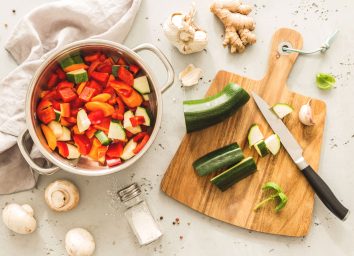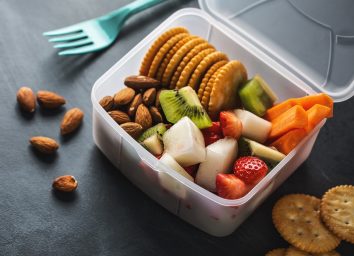Snacking Habits That Help You Lose Weight, Says Science
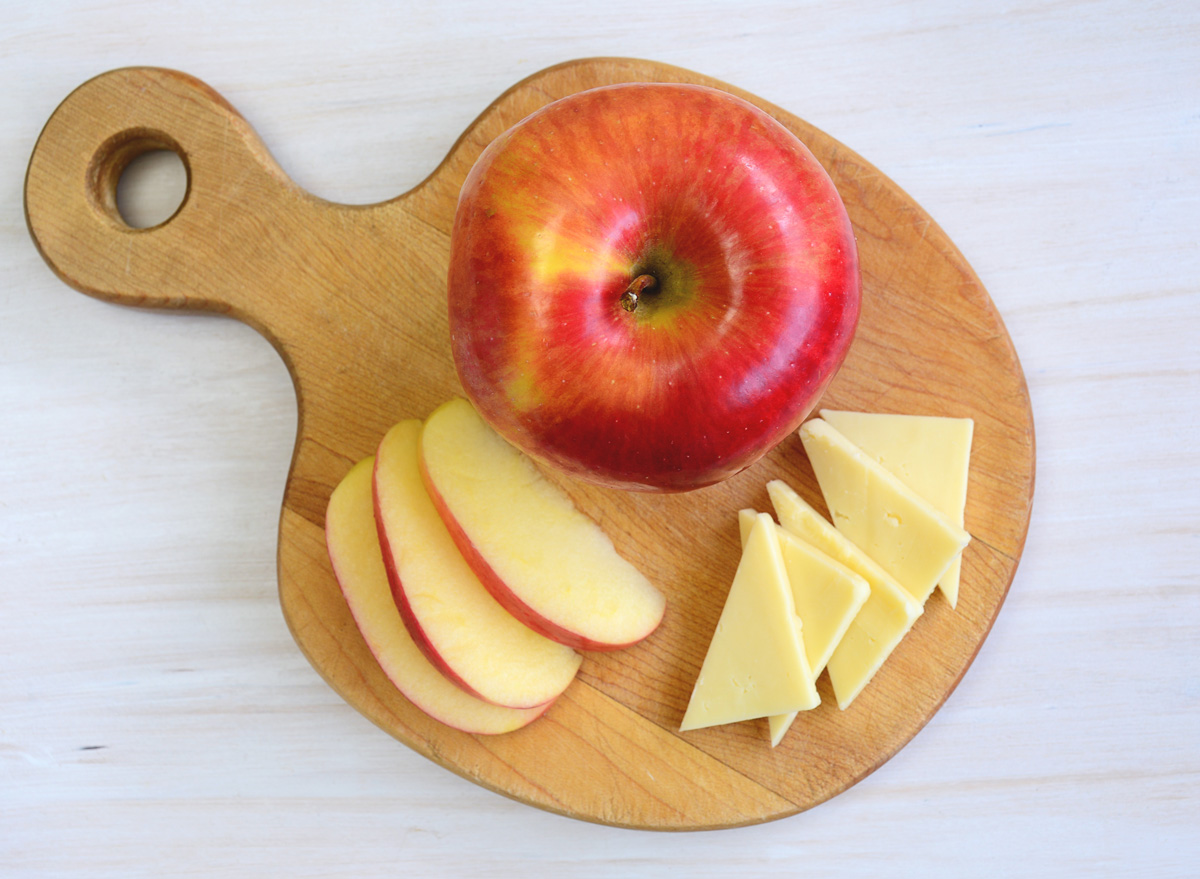
You are the model of steely discipline. A cold-eyed warrior unfazed by midday munchies, by late-night longings, by the siren song of Cinnabon. You stick to your three squares, restrict calories, and never allow yourself a salacious snack.
Congratulations. You've made weight loss an awful lot harder than it ought to be.
Here's the problem: Resisting snacks and restricting calories makes it more difficult to keep your metabolism revving. When your snacking is lacking, so, too, is your body's ability to burn fat—the key to long-term leanness. In fact, those who eat at least six times a day have lower body-mass indexes and consume fewer calories overall, than those who limit themselves to three squares, according to a 2015 study in the Journal of the Academy of Nutrition and Dietetics.
But that doesn't mean you should tear open the nearest bag of Cheetos and dive in. The snack aisle of your local supermarket is strewn with questionable chemicals, catastrophic calories, and snacks that are stripped of all their sustenance. Making the smart choice is critical—which is why we've set a list of the best snacking habits you can follow for weight loss. Here's what we recommend, and for more healthy tips, be sure to check out our list of 15 Underrated Weight Loss Tips That Actually Work.
Snack in the afternoon—between lunch and dinner.
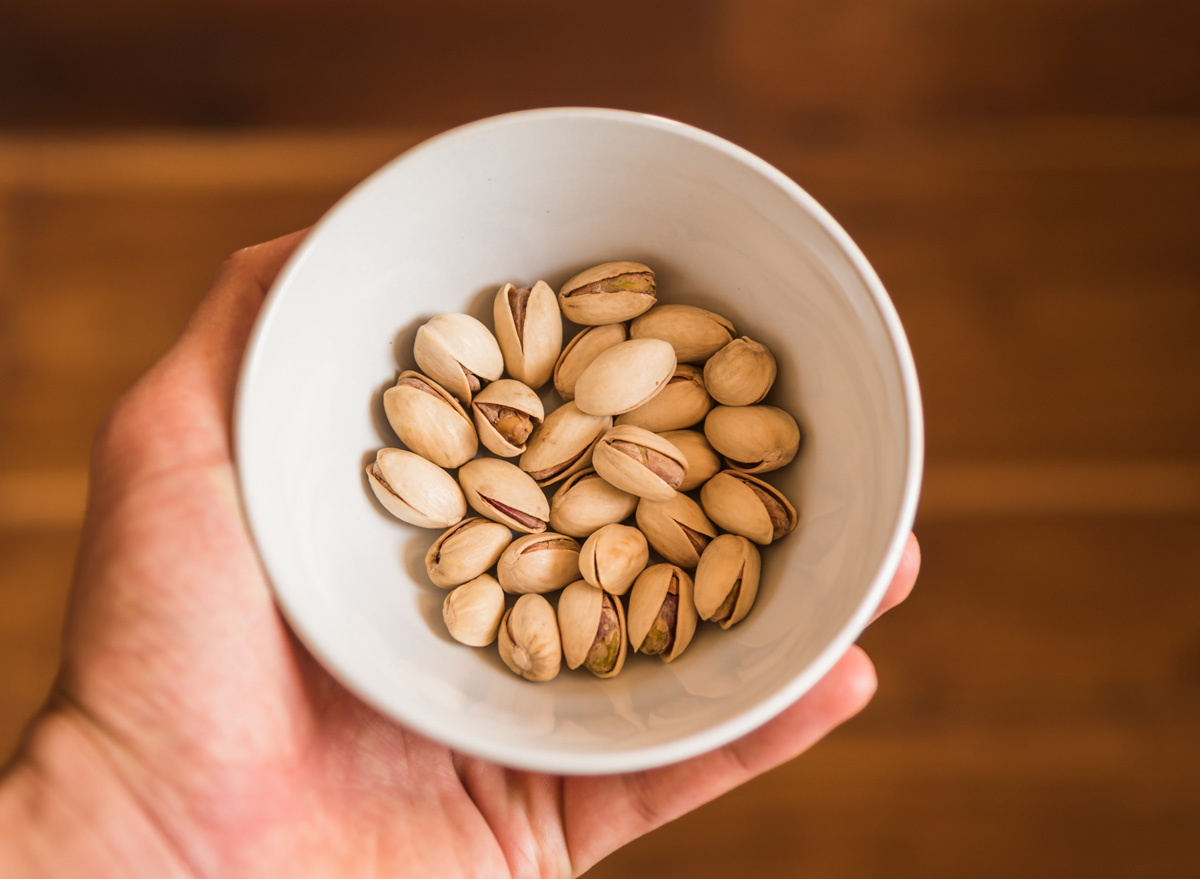
Having a bite to hold you over 'til lunch is common practice, but a study published in the Journal of the American Dietetic Association found that mid-morning snackers tended to snack more throughout the day than afternoon snackers, resulting in hindered weight-loss efforts. Afternoon snacking was associated with a slightly higher intake of fiber and fruits and vegetables.
For healthy snack ideas, check out our list of the 15 Snacks Nutritionists Eat Every Day.
Give your plate some color.
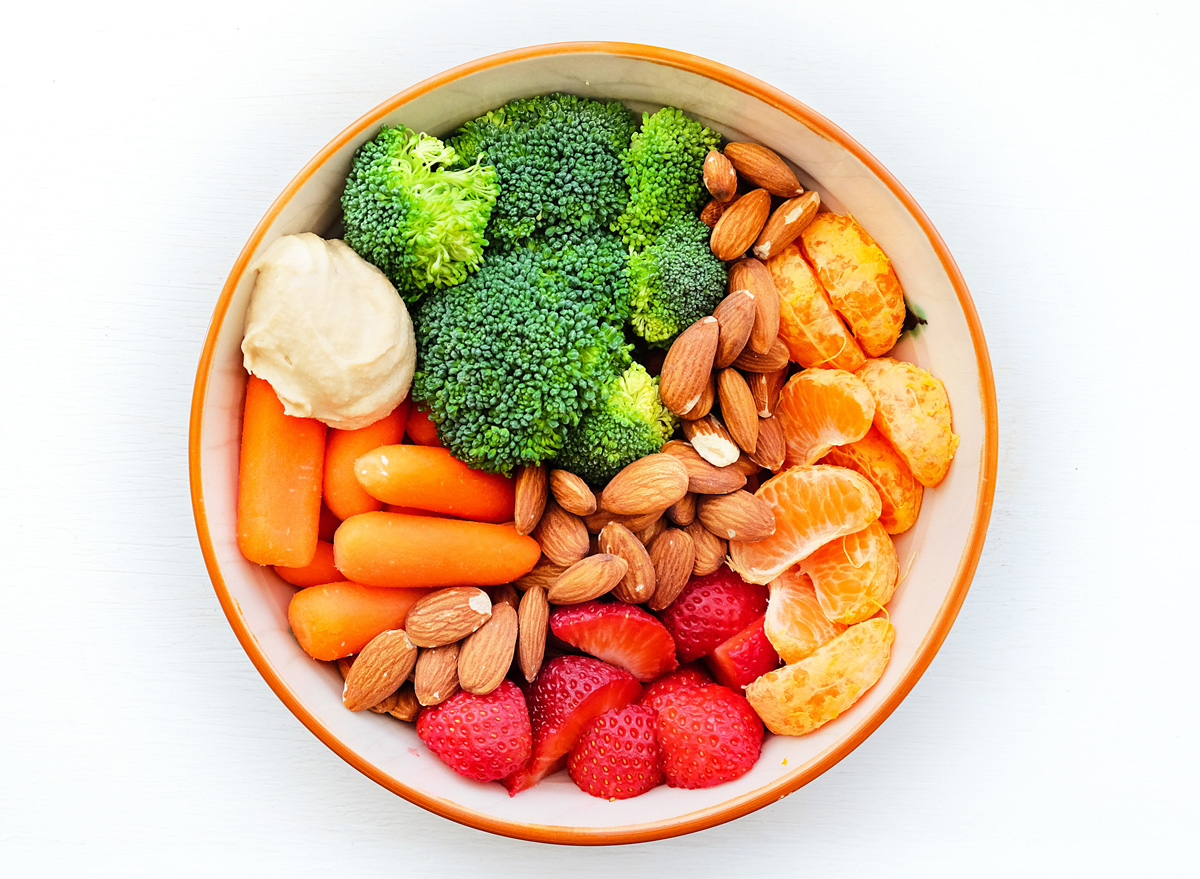
You can avoid a mindless binge by adding visual traffic lights to your snack. Researchers at the University of Pennsylvania and Cornell University gave one set of students a bowl of uniform yellow chips, while another group had their regular snack layered with differently colored chips. Students who had their snack segmented ate 50% less than those with a uniform bowl.
So instead of having a plain bowl of one colored snack—like nuts—give your snack bowl some variety. Add in different colored fruits, vegetables, and even healthy dips like hummus or guacamole to give your snack some color. Or try out one of these 15 Best Snack Combos That Double Weight Loss.
Add in some protein.

Make sure your snack contains protein, which requires more energy to burn than carbs or fats—thus keeping you fuller longer. But don't take it from me: In a study in the journal Appetite, researchers from the University of Missouri compared the satiety effects of high-, moderate-, and low-protein yogurts on twenty-four- to twenty-eight-year-old women, and found Greek yogurt, with the highest protein content, to have the greatest effect.
You can easily make one of these 19 High-Protein, Low-Carb Snacks For Weight Loss.
Avoid larger bag deals.

A 2015 study in the journal Appetite found that the larger the bottle, bag, or box the food comes in, the larger we think the serving size should be. Researchers surveyed more than thirteen thousand people and found that when confronted with larger packages of cola, chips, chocolate, or lasagna, the shoppers tended to want to serve themselves larger portions.
Swap hands.
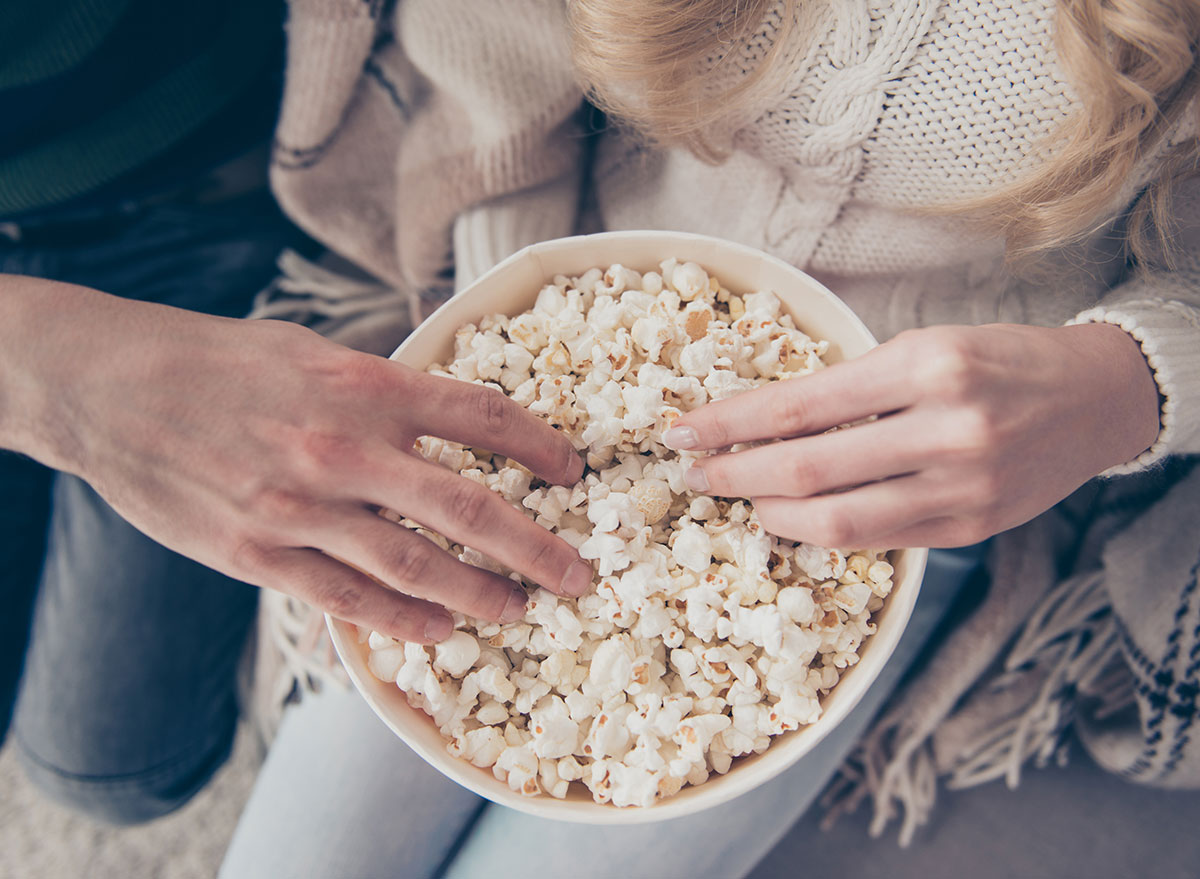
Want to snack less without going snackless? Try the left-handed diet (assuming you're right-handed). Research in Personality and Social Psychology Bulletin found moviegoers grabbed for less popcorn when doing so with their nondominant hand. Eating with your non-dominant hand makes you think about what you're doing and may help you eat less.
Use a smaller bowl.
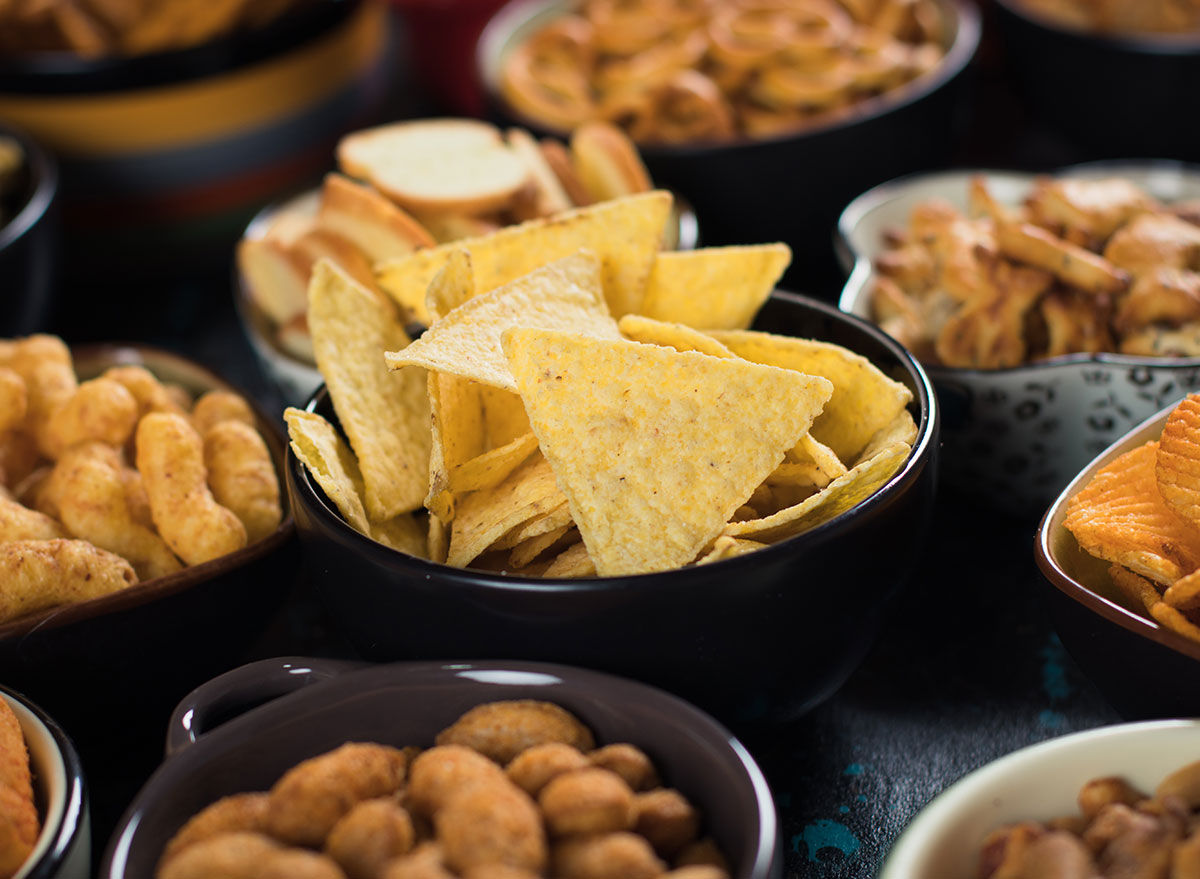
Grabbing handfuls from the bag is never a good idea, but munching from a punch bowl won't do much for weight loss either. A study in The FASEB Journal suggests that overeating may be associated with the size of your plate—or bowl. Participants who were given larger bowls served and ate 16% more than those given smaller bowls. Not only that, the big-bowlers underestimated just how much they were eating by 7%! Take advantage of the visual illusion with belly-friendly bowls or ramekins.
Still trying to figure out the right portions? Here are 18 Easy Ways to Control Your Portion Sizes,
Don't be duped by "low fat" snacks.
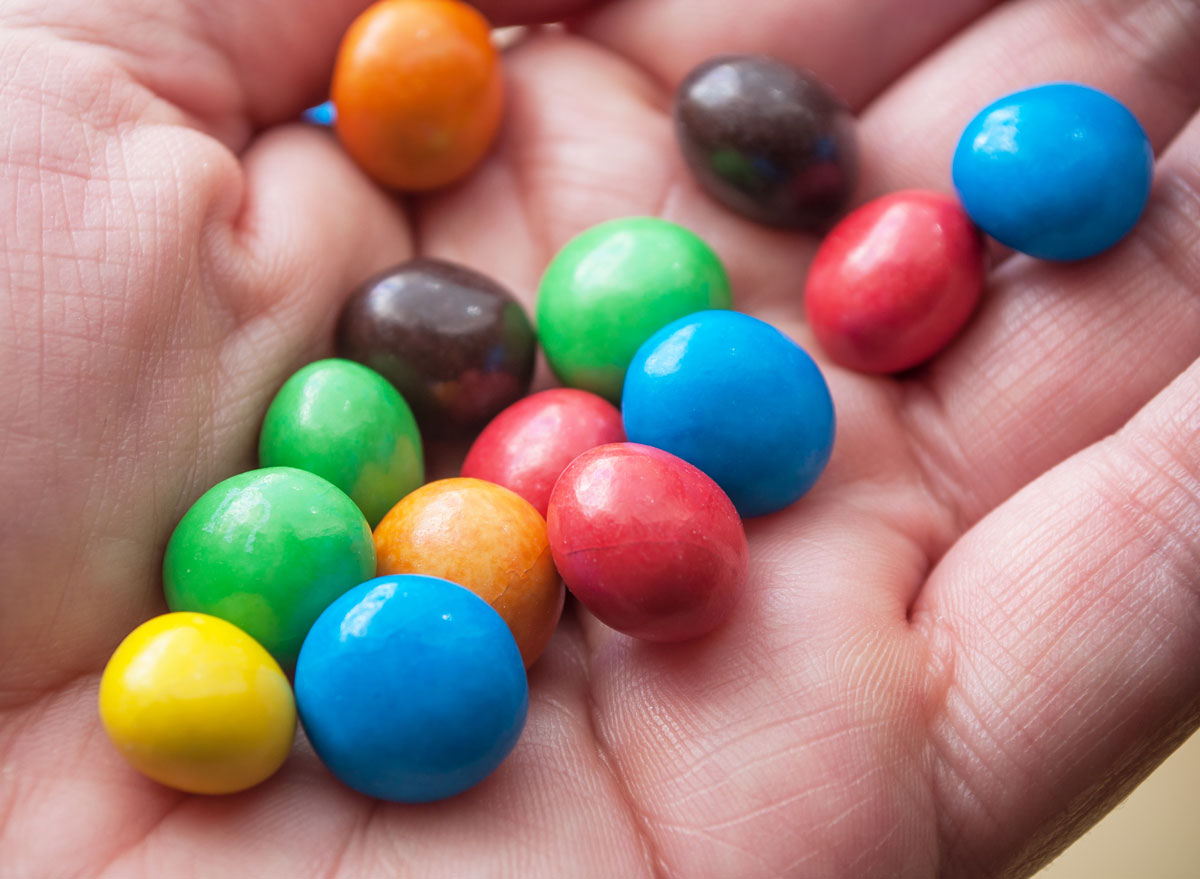
Just because something is marketed as "low fat" doesn't mean it's good for you—or you should eat more of it. A Cornell University study printed in the Journal of Marketing Research suggests people eat more of a snack that's marketed as "low fat." Participants in the study ate a whopping 28% more of a snack (M&M'S!) labeled "low fat" than when they didn't have the label.
Now that you know what snacking habits to follow, make sure to avoid falling for these 40 Worst Habits For Belly Fat, Say Experts.
